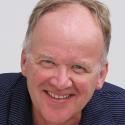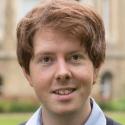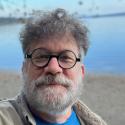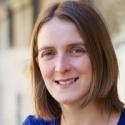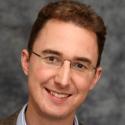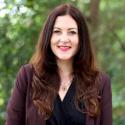2023 Academic Network
- Image
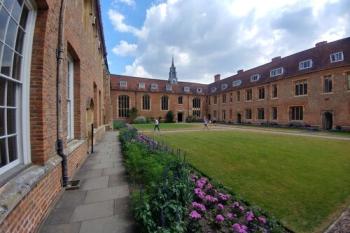
As Christian academics we often experience isolation. Being evangelicals within a secular university or liberal seminary setting isolates us from our peers, while at church, underlying anti-intellectualism may isolate us from our brothers and sisters in Christ. We may experience isolation because of the solitary nature of research, writing, and lecture preparation, or because of our own introverted and reclusive personalities.
At the same time, because of the far-reaching influence of the classroom and higher education in shaping leaders and the next generation, every Christian scholar possesses an outsized potential for multi-generational impact. Our calling is to bring glory to Christ in the university or the seminary where we serve. This is why, as followers of Christ in the academy, we must be intentional about connecting with other like-minded colleagues.
The primary purpose of the ELF Academic Network is to gather together Christian scholars throughout Europe for equipping, united, resourcing, prayer, and accountability. At the 2023 Network, you will be blessed by outstanding presenters. Each one is a recognized scholar who, in their own academic work, is living and modeling what they teach. You will have opportunities to ask questions, discuss issues with your colleagues, and reflect on how these principles should change the way you think, live, and teach.
Prior preparation will be set for all applicants.
Applicants should be teaching or leading in a university, seminary, bible institute, or other post-secondary educational institution or graduate students who hope to serve Christ in the academy. This Network will help academicians from a wide spectrum of disciplines to think about their discipline from a Christian worldview, attain excellence in teaching and research, share Christ with others, and maintain spiritual fervor.
Network Leadership
Network Speakers
Max Baker-Hytch received his PhD in Philosophy from Oxford University in 2014 and subsequently held two postdoctoral research fellowships, one at Oxford (2014-15) and one at the University of Notre Dame (2015-16). Since 2016, he has been Tutorial Fellow in Philosophy at Wycliffe Hall, Oxford… Read more
Andy Bannister is a highly in-demand speaker, writer, and broadcaster. Based in the UK, he's the director of the Solas, an evangelism and training ministry. Andy is the author of several books including "The Atheist Who Didn’t Exist (or: The Dreadful Consequences of Bad Arguments)… Read more
Ralf Bergmann, born in 1962, is married and has three adult children, two children-in-law and three grandchildren. He received his degree in physics and a doctorate from German universities. He is or has been mainly involved in semiconductor physics and technology, photovoltaics and optical… Read more
Charlie Catlett is a senior computer scientist at Argonne National Laboratory and The University of Chicago who has focused his research for 40 years in the development of the Internet and WorldWideWeb, computer security, and high-performance computing, holding scientific leadership positions at… Read more
Sharon Dirckx is an independent speaker, author and broadcaster whose work focuses on responding to the spiritual questions that people ask today. Originally from a scientific background, she has a PhD in brain imaging from the University of Cambridge and has held research positions in the UK… Read more
Tim Laurence leads evangelical academic ministry in three contexts which feed into one another: IFES Europe, UCCF, and Cambridge, were he coordinates the Forming a Christian Mind conference and the Cambridge Christian Study Centre within The Round Church. In all contexts, his vision is to see… Read more
Kristi Mair teaches philosophy, ethics, and apologetics at Oak Hill College in London, UK, where she also provides pastoral support for F students. She holds a degree in philosophy and theology, as well as an MA in philosophy of religion and ethics. She is currently working on her PhD in the… Read more
David Sandifer was born and raised in France, of American parents. He holds a Ph.D. in history, from the University of Cambridge (2014). He spent 20 years in pastoral ministry in the U.S. and Australia, and also worked for a Christian public advocacy organisation in Australia, where he co-… Read more
Network Programme
Sunday, 21 May
What exactly are human beings? Are we advanced apes? Are we machines? Are we souls confined to a body? Questions of core human identity are central to many contemporary discussions. One often expressed view is that human beings are their brains. Our behaviours, choices, personality, even religious beliefs are dictated by the chemical and electrical activity in our neurons. Is this true? Or is there more to us than simply matter? If God is real, does that change how we think about this topic? In this lecture we will address these questions and others, drawing upon clinical neuroscience, philosophy and theology as we think about who we really are.
Mathematicians and computer scientists have developed and studied Artificial Intelligence (AI) for many decades. In 1950 Alan Turing, considered one of the fathers of computer science, proposed the "imitation game" (now called the Turing Test) to assess a computer's ability to interact in a fashion indistinguishable from a human. We discuss how AI systems work (without formulae or buzzwords), what we might expect in the coming decade, and how AI systems are playing an increasingly central role in culture and society.
Monday, 22 May
The world is full of tough questions about the Christian faith, so how do we learn all the answers so we can engage our friends in conversation. Well, the good news is you don’t have to learn every answer, because there are some helpful steps that you can use in any conversation any time a tough question or issue comes up. In this session, we will learn this very practical approach and how it works by demonstrating it on two or three commonly asked questions about Christianity.
In a time of post-truth, virtue-signaling and relativism, do people even care about truth? When it comes to engaging with our cultural moment, how can we persuasively communicate the truth of Jesus Christ? In this session, we will explore a few philosophical underpinnings before we consider how we can share Jesus in a non-truth culture, where slogans like ‘stay in your own lane’, and ‘you do you’ dominate discussions. How can we engage, expose, enter, and evangelize in seemingly disinterested and apathetic societies? We will also spend time considering how we can share the liberating, life-giving joy of Christ when suspicion, power- plays, and corruption occupy the public imagination.
Tuesday, 23 May
What is good reasoning and what is manipulation? How can manipulation be recognized in the private as well as in the public sphere? What is propaganda and how does it work? In this session, we will analyse some basic concepts of manipulation and countermeasures and discuss the main ideas of the Harvard concept of fair and respectful negotiation. We will then look at basic ideas established by the father of modern propaganda, Edward L. Bernays (1891 -1995) and give some illustrative examples. Finally, we will describe the freedom of Christian thinking, how to break self-censorship, overcome conformity and speak up in public persuasively and effectively.
Transhumanism is an emerging worldview that promises to fundamentally transform the human condition through enhancement technologies such as genetic engineering, nanotechnology, and AI, even aspiring to overcome the ultimate limitation: death. In this seminar we take a deep dive into the understanding of human nature that underpins this ideology, and set it side by side with a Biblical understanding of what it means to be human, asking where there might be some points of contact but also where the deep dividing lines lie.
Wednesday, 24 May
One of the great challenges for discipleship today is navigating a media world which so often floods Christians with content which is undermining or antagonistic to spiritual growth. In the early nineteenth-century, British evangelicals sought to respond to similar challenges--and ended up reforming not only the church, but all of society. This presentation will bring out some of the underlying convictions about discipleship which guided evangelical leaders of the Wilberforce generation, and apply these to Christians living in the internet age.
This session will present the need and methods for ministering to doctoral students. It will deal with questions such as why it is crucial to minister to doctoral students and will share foundational principles for encouraging evangelical vision and unity. It will also outline practical ways we can work together to reach and connect with Christian doctoral students, encourage their theological and worldview formation, equip their outreach, and support their networks and groups.

